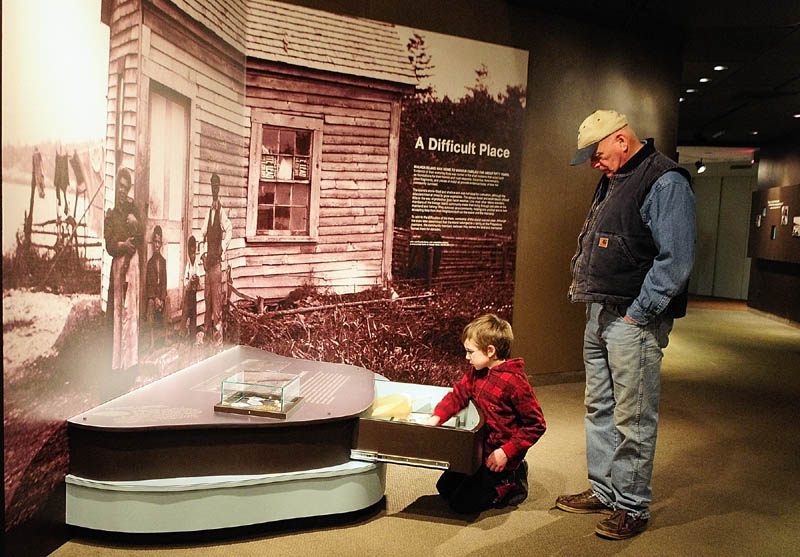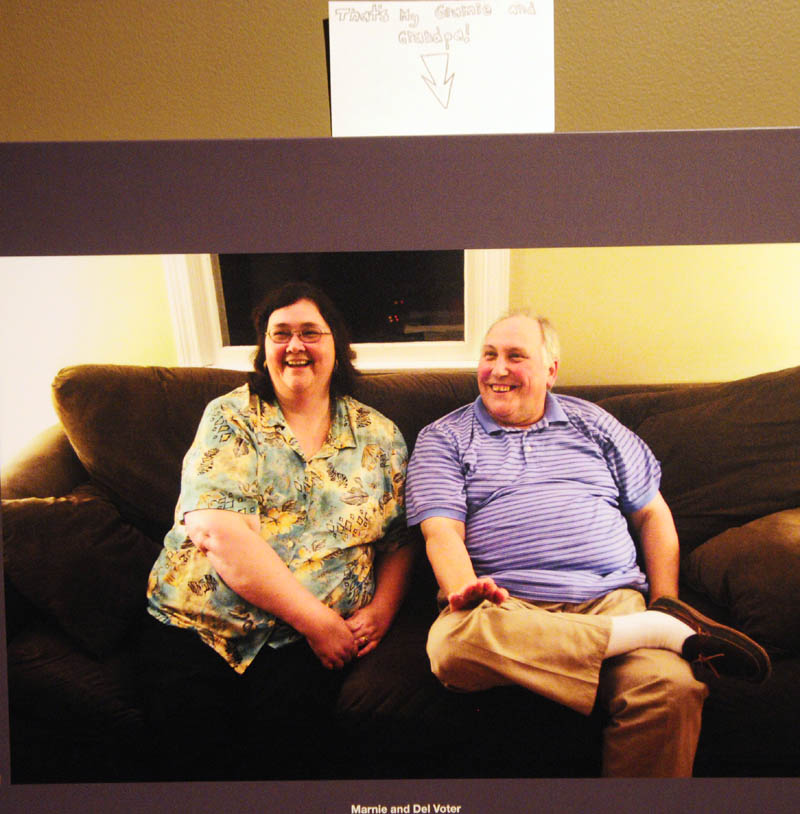AUGUSTA — Marnie Darling Voter shared personal — and painful — family secrets with Maine State Museum curator Kate McBrien.
The curator was putting together a new museum exhibit featuring the families of Malaga Island.
Voter’s descendants — the Darling family — were among those forced to leave the island when the state evicted members of a “mixed-race community of economically struggling people perceived at the time to be a social and moral detriment to the area,” said Maine State Museum Director Bernard Fishman. The state went so far as to dig up the island cemetery in 1912 and transfer the remains to what was then called the Maine School for the Feebleminded.
McBrien wanted to tell their story and spent years cultivating the trust of Voter and others.
Neither woman thought the emails shared between them might be public records.
But once the exhibit went up last May, McBrien started getting requests for her documentation. Some people wanted to see all of her files, which would have included emails, newspaper clippings, photographs and other evidence she gathered in preparation for the exhibit.
“I had corresponded with people who are very much alive and for which this story is very real, very raw,” McBrien said. “I felt like it wasn’t my position to share any of that without permission. But could I do that as a state employee?”
McBrien worked with each person who requested information to tease out exactly what they were looking for so she could comply with the requests. But she and Fishman are concerned that the museum needs additional protection to exempt certain information from the state’s Freedom of Access Act.
“For a reasonable period of time — not forever,” Fishman said. “We don’t want to brick up history behind a wall.”
At a public hearing Thursday, Fishman and Voter told lawmakers on the Education and Cultural Affairs Committee that they support L.D. 1019 because it would better protect ongoing historical research from public view.
Rep. Dennis Keschl, R-Belgrade, sponsored the measure, which exempts from the Freedom of Access Act historical research that includes personally identifying information. That includes medical, psychiatric, employment, counseling or law enforcement records. It also seeks to protect draft research and exhibits that are not yet complete.
No one spoke out against the bill during Thursday’s hearing.
“They would have to turn over my emails to them that I thought would be private,” Voter said. “The thing I appreciate about the Maine State Museum is they’ve been so gentle with us. They have our backs.”
Voter said some of her family members only recently learned of their connection to the island.
“We’ve been under a forced shame, a false shame,” she said.
While she’s been forthcoming in emails to McBrien, she’s not sure other members of her family would be comfortable with public disclosure of some of those details. She and Fishman both said that a generation should pass before the information is released.
“Give me a generation and I’m fine with it,” she said.
Fishman said the exhibit, “Malaga Island, Fragmented Lives,” is a different kind of display for the museum because it details a relatively recent — and highly controversial — event. The exhibit runs through May 26.
Some of the descendants have just learned within the last five years of their connection to the island, which helps fill in blanks in family history that has never before been discussed, O’Brien said.
In 2010, the state Legislature passed a joint resolution to express “profound regret” for the way the residents were treated, and then-Gov. John Baldacci visited the island with family members to apologize.
Former museum director J.R. Phillips submitted written testimony in support of Keschl’s bill, which he believes is necessary to ensure that work of the museum is not “gravely curtailed.”
Phillips said “well-intentioned enthusiasts” would sometimes contact the museum seeking documentation, but were unaware that they might be requesting personal information.
“Like many other draft government reports and working documents, I believe Maine State Museum exhibit and publication drafts should be protected until finalized and released,” he wrote.
Susan Cover — 621-5643
scover@mainetoday.com
Send questions/comments to the editors.




Comments are no longer available on this story